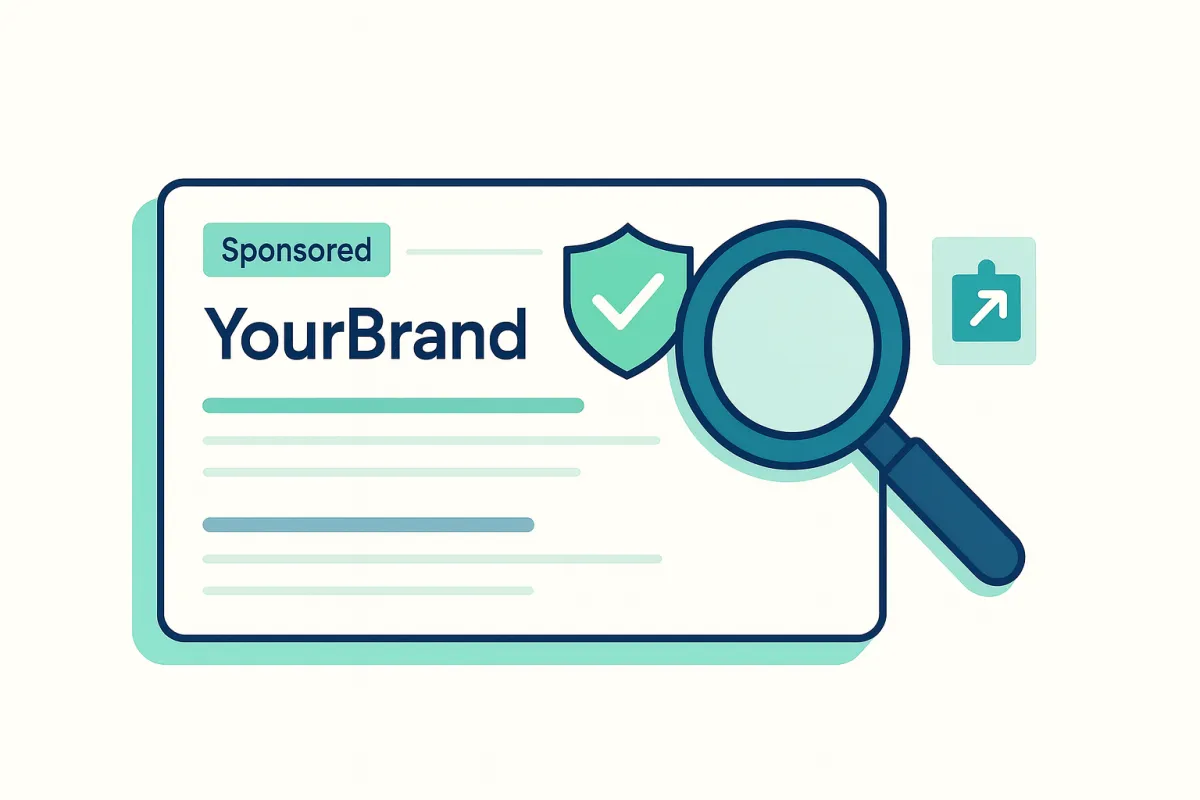
Why Branded Search Isn’t Optional
Every business owner eventually asks the same question: “Do I really need to pay for clicks on my own brand name?”
It does not matter whether you run a SaaS company, an e-commerce store, a law firm, or a local clinic. The temptation is universal. If someone searches for your exact business name, and you rank #1 organically, why spend money on ads?
The reality is that branded search is not optional. It is one of the most efficient and protective campaigns you can run. Without it, you leave your front door wide open for competitors, misinformation, and missed opportunities.
Let’s break down why branded search matters, where it sometimes gets overlooked, and how to run it the right way.
The “Free Clicks” Myth
The biggest objection to branded search is simple. Businesses assume they are wasting money on clicks they would receive anyway from SEO.
The data shows a different story. Google’s own large-scale pause tests found that 89 per cent of branded ad clicks are incremental. In other words, when branded campaigns were paused, nearly nine out of ten of those clicks were not recovered organically. Those visitors simply went elsewhere.
This finding has been repeated across industries. Retailers, SaaS companies, healthcare providers, and local service businesses all show the same pattern. Branded ads bring incremental conversions that SEO alone does not capture.
There is one famous exception. eBay tested switching off branded ads across millions of users and found little short-term impact. But eBay is a household name with massive navigational search volume. For almost every other business, brand ads prove to be incremental and efficient.
Competitors Can Buy Your Name
Imagine a potential customer searching for your business by name. Instead of seeing your official site at the top, they are presented with an ad from a competitor.
This happens every day in every niche. Google allows competitors to bid on your brand as a keyword. The only restriction is that they cannot use your trademark directly in the ad text in a misleading way.
If you are not present with branded ads, you risk losing high intent prospects at the final stage of their journey. Whether you are a plumber in Essex, a SaaS company in New York, or an ecommerce store selling nationwide, your competitors can conquest your name and intercept your leads.
Branded campaigns ensure you control the absolute top of the search results page. If you do not occupy that space, someone else will.
Branded Ads Protect Your Reputation
Search results are not only about visibility. They are about perception. When someone searches for your company name, the first page of Google acts as your digital storefront.
Consider these scenarios:
A local restaurant receives a negative press article.
An e-commerce retailer has shipping delays and customer complaints.
A SaaS company experiences downtime, and frustrated users take to Twitter.
Without branded ads, the first impression may be dominated by negative or third-party content. With branded campaigns, you can immediately direct users to an official update, a support page, or positive reviews.
This level of control is critical when reputation and trust directly impact whether a customer chooses you.
Branded Search Has the Best ROI
Across industries, branded campaigns consistently deliver superior performance. They usually show:
Lower CPCs due to high relevance and Quality Score.
Higher click-through rates, since users are already looking for you.
Higher conversion rates compared to generic campaigns.
For e-commerce, branded ads often deliver the highest return on ad spend. For local services, they can double booking rates. For B2B companies, branded ads are usually the cheapest source of demo requests.
It is not uncommon for branded campaigns to show ROI that is several times higher than other campaigns in the same account.
Branded Search Amplifies Every Other Channel
Another reason branded search is not optional is how it supports all your other marketing investments.
Think about the journey. A person sees your brand on Instagram, hears about you on a podcast, or meets you at a trade show. Their next step is rarely clicking “buy now.” More often, they Google your name.
That branded search is the bridge between awareness and conversion. If you do not have ads in place, you leave a gap in the funnel. Your competitors can step in, or the prospect might get distracted and never return.
This pattern is true in every niche. Branded campaigns act as the catch-net for the demand your other channels generate.
When Could Branded Search Be Optional?
There are very few cases where branded campaigns may be unnecessary. A global brand with overwhelming organic dominance, no competitor conquesting, and proven minimal incremental lift might not need branded search.
But for 99 per cent of businesses, this is not reality. For most companies, branded campaigns are the cheapest, safest, and most reliable way to protect and grow their customer base.
How to Run Branded Campaigns the Right Way
The key to success is not just running branded ads, but running them well. Poorly managed brand campaigns can lead to overspending. Here are best practices that apply in any industry:
Segment campaigns
Separate core brand, brand plus product, misspellings, and “brand vs competitor” searches. This gives you control over bidding and messaging.Use exact and phrase match
Keep targeting tight so you are not paying for loosely related traffic.Control CPCs
Avoid letting automated bidding inflate the cost of easy branded clicks. Set conservative caps or strict CPA/ROAS targets.Maximize extensions
Use sitelinks for Pricing, Reviews, Support, Demo, or Book Now. Add callouts for value props and structured snippets for services.Run incrementality tests
Use geographic splits or time-of-day pauses to measure how many conversions branded ads truly add.Monitor competitors
Check Auction Insights regularly. If competitors start conquesting your brand, adjust bids and ad copy accordingly.
Common Mistakes to Avoid
Relying only on organic and assuming paid is unnecessary.
Not adding negatives, which allows generic queries to bleed into branded campaigns.
Overbidding on brand, which drives CPCs unnecessarily high.
Ignoring incrementality tests, which leaves you blind to the true value.
Failing to update creative, which wastes an opportunity to promote timely offers, reviews, or announcements.
What to Track Weekly
To measure branded search effectively, monitor these metrics:
Impression share, especially absolute top.
CPC trends compared to non-brand.
Conversion rate and CPA.
Incremental lift from tests.
Competitor overlap and outranking share in Auction Insights.
Together, these KPIs show whether your brand is fully protected and whether your spend is efficient.
Final Word
Branded search is often misunderstood as optional. Some businesses view it as wasted spend or a luxury they can cut when budgets are tight. In reality, branded campaigns are one of the most essential tools for protecting your name, capturing demand, and driving efficient revenue.
It does not matter whether you are a global SaaS company, a growing e-commerce store, a local trades business, or a professional services firm. If customers are searching your name, you need to own that moment.
Branded search is not optional. It is a non-negotiable part of a growth strategy in any niche.



